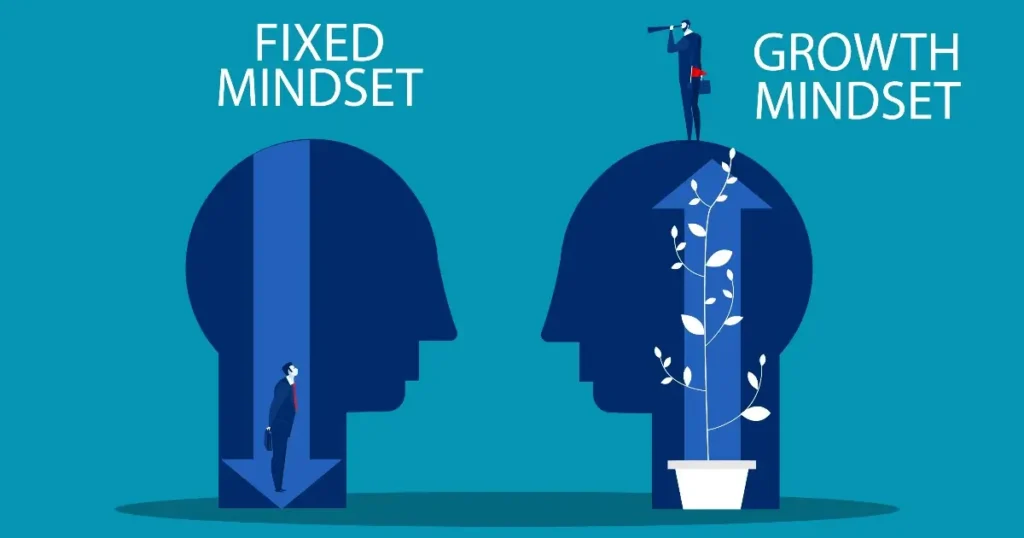6 Foods That Hijack the Brain’s Reward System & How to Avoid Them

Disclosure: The information provided is for educational purposes only and not intended as medical advice. Consult a healthcare professional before making any changes to your health routine.
Our brain’s reward system is a powerful driver of behavior, influencing everything from our food choices to our emotional responses. Research has shown that certain foods can overstimulate this system, leading to unhealthy cravings and eating habits that can derail our health goals. The intricate interplay between nutrition and brain chemistry is crucial to understand if we aim to maintain both physical and mental well-being.
Studies reveal that foods high in sugar, fat, and salt can hijack our brain’s reward pathways, making them particularly addictive and hard to resist. The surge of dopamine they trigger can create a cycle of craving and consumption that undermines our best intentions. Understanding the impact of these foods on the brain and learning strategies to avoid them is essential for holistic health.
In this article, we will explore six foods & beverages that can hijack the brain’s reward system and provide practical tips on how to avoid them. By making informed dietary choices, you can support your brain health and overall well-being.
How Does the Brain’s Reward System Work?
The brain’s reward system is a complex network of neurons that utilizes dopamine to signal pleasure and reinforce behaviors. When we engage in activities that promote survival, such as eating or socializing, dopamine is released, creating feelings of enjoyment and reinforcing these behaviors. This system involves several key brain regions, including the nucleus accumbens, the prefrontal cortex, and the amygdala. Together, they process rewards, evaluate their significance, and motivate us to repeat behaviors that produce positive outcomes. Understanding how this system functions helps us grasp why certain foods can become addictive and influence our eating habits so profoundly.
1. Sugary Snacks

Sugary snacks, such as candies, pastries, and sweetened beverages, are notorious for their impact on the brain’s reward system. Research has demonstrated that consuming high-sugar foods triggers a significant release of dopamine, the neurotransmitter responsible for pleasure and reward. This release creates a temporary feeling of euphoria, which is often followed by a rapid decline, leaving individuals craving more sugar to regain that pleasurable sensation. This cycle of spikes and crashes can lead to habitual consumption and dependency, as the brain becomes conditioned to seek out the immediate rewards provided by sugary snacks.
Studies have shown that the overconsumption of sugary foods can alter the brain’s reward pathways, making them more sensitive to sugar and less responsive to natural rewards. This phenomenon is similar to the effects observed in substance abuse, where the brain’s reward system is hijacked by artificial stimuli. Over time, this can lead to a reduced ability to experience pleasure from healthier, more balanced foods and activities, perpetuating a cycle of unhealthy eating habits. Additionally, excessive sugar intake is linked to various health issues, including obesity, diabetes, and cardiovascular disease, further emphasizing the need for moderation and mindfulness in dietary choices.
To mitigate the effects of sugary snacks on the brain’s reward system, it is crucial to adopt healthier eating habits. One effective strategy is to gradually reduce sugar intake, allowing the brain to recalibrate its reward responses. Substituting sugary snacks with whole fruits can provide a natural source of sweetness along with essential nutrients and fiber. Moreover, increasing the consumption of proteins and healthy fats can help stabilize blood sugar levels, reducing cravings and promoting a more balanced diet. By understanding the impact of sugary snacks on the brain and making conscious dietary adjustments, individuals can support their overall well-being and foster a healthier relationship with food.
2. Ultra Processed Foods

Processed foods, which include items such as ready-to-eat meals, packaged snacks, and fast food, are designed to be convenient and palatable, often at the expense of nutritional value. These foods are typically high in unhealthy fats, sugars, and salt, all of which can overstimulate the brain’s reward system. The combination of these elements can lead to an excessive release of dopamine, creating a heightened sense of pleasure and satisfaction. This overstimulation can cause the brain to become accustomed to high levels of these rewarding stimuli, making it increasingly difficult to find satisfaction in healthier, less processed foods.
Research has indicated that the frequent consumption of processed foods can lead to changes in the brain similar to those observed in drug addiction. The repeated exposure to high levels of sugar and fat can alter the brain’s reward pathways, leading to increased cravings and a reduced response to natural rewards. This can result in a cycle of compulsive eating, where individuals feel a constant urge to consume more processed foods to achieve the same level of pleasure. Additionally, processed foods are often engineered to have a long shelf life and intense flavors, which can further contribute to their addictive potential and the difficulty in moderating their intake.
To counteract the impact of processed foods on the brain’s reward system, it is essential to prioritize whole, unprocessed foods in one’s diet. Preparing meals from scratch using fresh ingredients can help reduce the intake of unhealthy additives and provide a more balanced array of nutrients. Emphasizing fruits, vegetables, whole grains, and lean proteins can support the brain’s natural reward mechanisms and promote better overall health. Additionally, being mindful of portion sizes and limiting the consumption of highly processed snacks can help break the cycle of addiction and encourage a healthier relationship with food. By understanding the profound effects of processed foods on the brain, individuals can make more informed dietary choices that enhance their well-being and longevity.
3. Trans Fats

Trans fats, often found in margarine, baked goods, and many fried foods, are a type of unsaturated fat that has been industrially modified to improve shelf life and stability. These fats are created through a process called hydrogenation, which adds hydrogen to liquid vegetable oils, turning them into a more solid form. While this process benefits food manufacturers, the health implications for consumers are significant, particularly concerning the brain’s reward system.
Consuming trans fats can interfere with brain function by altering the composition of cell membranes and disrupting normal neural processes. Research has shown that trans fats can negatively affect the brain’s reward pathways, leading to changes in behavior and mood. For instance, studies have linked high trans fat consumption to increased aggression and a higher risk of depression. These fats can also impair memory and cognitive function, making it harder for the brain to regulate dopamine levels and reducing its ability to experience pleasure from natural rewards.
To avoid the detrimental effects of trans fats on the brain and overall health, it is essential to read food labels carefully and avoid products containing partially hydrogenated oils. Opting for healthier fat sources, such as those found in avocados, nuts, seeds, and olive oil, can support brain function and promote a balanced reward system. Additionally, preparing meals at home using whole, unprocessed ingredients can help minimize trans fat intake. By making these dietary changes, individuals can protect their brain health, enhance cognitive function, and maintain a healthier, more balanced lifestyle.
4. Caffeine

Caffeine, a central nervous system stimulant found in coffee, tea, energy drinks, and various medications, is widely consumed for its ability to enhance alertness and reduce fatigue. While moderate caffeine intake can offer cognitive benefits, excessive consumption can have significant effects on the brain’s reward system and overall health. Understanding the impact of caffeine on the brain is crucial for maintaining a balanced approach to its use.
When consumed, caffeine blocks the action of adenosine, a neurotransmitter that promotes sleep and relaxation, leading to increased neuronal firing and the release of dopamine. This dopamine release can enhance mood and create a sense of pleasure, reinforcing the desire to consume caffeine regularly. However, over time, the brain can develop a tolerance to caffeine, requiring higher doses to achieve the same stimulating effects. This can lead to dependency, where individuals rely on caffeine to function normally, potentially disrupting natural energy regulation and sleep patterns.
Excessive caffeine consumption can also lead to negative health effects such as anxiety, jitteriness, insomnia, and increased heart rate. These symptoms can exacerbate stress and reduce overall well-being, further affecting the brain’s reward system. To mitigate these effects, it is essential to monitor caffeine intake and practice moderation. Strategies include limiting the number of caffeinated beverages consumed daily, choosing lower-caffeine options like green tea, and avoiding caffeine intake late in the day to prevent sleep disturbances. By adopting these mindful practices, individuals can enjoy the benefits of caffeine without compromising their brain health and overall well-being.
5. Artificial Sweeteners

Artificial sweeteners, commonly found in diet sodas, sugar-free snacks, and low-calorie desserts, are often marketed as healthier alternatives to sugar. However, their impact on the brain’s reward system and overall health can be complex and potentially detrimental. These sweeteners can trigger the brain’s reward pathways by mimicking the sweetness of sugar, leading to a release of dopamine and a temporary sense of pleasure. However, unlike natural sugars, artificial sweeteners do not provide the same caloric content, which can confuse the brain and potentially increase cravings for sweet foods.
Research has shown that regular consumption of artificial sweeteners may disrupt the brain’s ability to regulate hunger and satiety. This disruption can lead to increased appetite and a preference for high-calorie, sugary foods, undermining efforts to maintain a healthy diet. Moreover, studies have suggested that artificial sweeteners can alter gut microbiota, which plays a crucial role in metabolism and overall health. Changes in gut flora can affect how the body processes food and regulates weight, potentially leading to metabolic disorders and other health issues.
To avoid the negative effects of artificial sweeteners, it is essential to adopt a more natural approach to managing sugar intake. Opting for natural sweeteners, such as honey, maple syrup, or stevia, can provide a sweet taste without the adverse effects associated with artificial alternatives. Additionally, gradually reducing the overall sweetness in your diet can help retrain your taste buds and decrease cravings for sugary foods. Incorporating whole fruits into your diet can also offer a natural source of sweetness along with essential nutrients and fiber. By making these conscious choices, individuals can support their brain’s reward system, promote better health, and develop a more balanced and satisfying relationship with food.
6. Alcohol

Although not a food, alcohol is a widely consumed beverage that significantly impacts the brain’s reward system and overall health. When consumed, alcohol triggers the release of dopamine, leading to feelings of pleasure and relaxation. This activation of the brain’s reward pathways can create a temporary sense of well-being, making alcohol a common component of social gatherings and celebrations. However, the effects of alcohol extend beyond these transient feelings, as chronic consumption can lead to substantial changes in brain chemistry and function.
Regular alcohol consumption can alter the brain’s reward system by affecting neurotransmitter levels and receptor sensitivity. Over time, the brain adapts to the presence of alcohol, requiring higher amounts to achieve the same pleasurable effects, a phenomenon known as tolerance. This increased consumption can raise the risk of developing alcohol dependence. Moreover, excessive alcohol intake can impair the brain’s ability to regulate dopamine levels, reducing its responsiveness to natural rewards. This diminished sensitivity can lead to mood disorders, such as depression and anxiety, reinforcing the cycle of alcohol use as individuals seek to self-medicate.
To mitigate the negative effects of alcohol on the brain’s reward system, it is crucial to adopt mindful drinking habits or consider reducing alcohol consumption altogether. Strategies such as setting limits on intake, alternating alcoholic drinks with water, and choosing lower-alcohol options can help manage consumption. Engaging in activities that promote relaxation and social connection without relying on alcohol can also support a healthier lifestyle. Practices like mindfulness meditation, regular physical exercise, and participating in social activities that do not involve drinking can enhance well-being and provide natural rewards. By making these conscious choices, individuals can protect their brain health, reduce the risk of dependence, and foster a balanced approach to enjoyment and relaxation.
Foods That Disrupt Your Brain’s Reward System
| Food | Impact on the Brain | How to Avoid | Healthier Alternatives |
|---|---|---|---|
| Sugary Snacks | Rapid dopamine spike followed by a crash, leading to cravings and overconsumption. | Opt for natural sweeteners in moderation and incorporate whole fruits into your diet. | Honey, maple syrup, stevia, fresh fruits (e.g., apples, berries, oranges) |
| Processed Foods | Combination of sugar, fat, and salt overstimulates the brain’s reward pathways, leading to addictive eating. | Focus on whole, unprocessed foods and prepare meals at home using fresh ingredients. | Fresh vegetables, lean meats, whole grains, homemade snacks (e.g., vegetable sticks with hummus) |
| Trans Fats | Unhealthy fats trigger excessive dopamine release, leading to overconsumption and health issues. | Choose healthier alternatives like grilled options and include healthy fats from avocados, nuts, and olive oil. | Grilled chicken, baked sweet potatoes, homemade burgers with lean meat, avocados, nuts, seeds, olive oil |
| Caffeine | Increases alertness but can lead to dependence and withdrawal symptoms. | Limit intake, avoid consumption in the afternoon and evening to prevent sleep disruption. | Herbal teas, decaffeinated coffee, water, smoothies with natural energy boosters like spinach or chia seeds |
| Artificial Sweeteners | Mimic sugar’s effect on the brain, leading to increased cravings and potential metabolic issues. | Use natural sweeteners sparingly and reduce overall sweetness in your diet. | Honey, maple syrup, stevia, fruit-infused water, herbal teas |
| Alcohol | Triggers dopamine release, leading to increased tolerance and potential dependence. | Limit intake, alternate with water, choose lower-alcohol options, and engage in non-drinking activities. | Sparkling water with a splash of fruit juice, herbal teas, kombucha, engaging in social activities like sports or games |
Final Thoughts

Understanding the impact of certain foods on the brain’s reward system is crucial for maintaining both physical and mental health. Sugary snacks, processed foods, high-fat fast foods, salty snacks, artificial sweeteners, refined carbohydrates, and alcohol each have unique ways of hijacking the brain’s pleasure pathways, leading to unhealthy cravings and consumption patterns. These foods can disrupt the delicate balance of neurotransmitters, alter brain function, and contribute to a range of health issues, from obesity and diabetes to mood disorders and addiction.
Making informed dietary choices is essential for breaking the cycle of dependence on these addictive foods. By prioritizing whole, unprocessed foods, reducing sugar and sodium intake, and choosing healthy fats, individuals can support their brain’s natural reward mechanisms and foster a healthier relationship with food. Incorporating strategies such as mindful eating, regular physical activity, and alternative sources of pleasure and relaxation can further enhance well-being and promote long-term health.
Ultimately, the journey to better health involves understanding the powerful effects of diet on the brain and making conscious decisions to support a balanced and rewarding lifestyle. By being aware of the foods that can hijack the brain’s reward system and taking proactive steps to avoid them, individuals can achieve a greater sense of control over their health and well-being, leading to a more fulfilling and vibrant life.

















